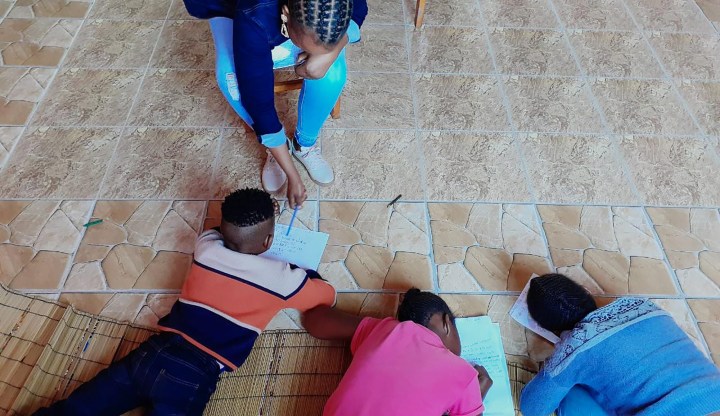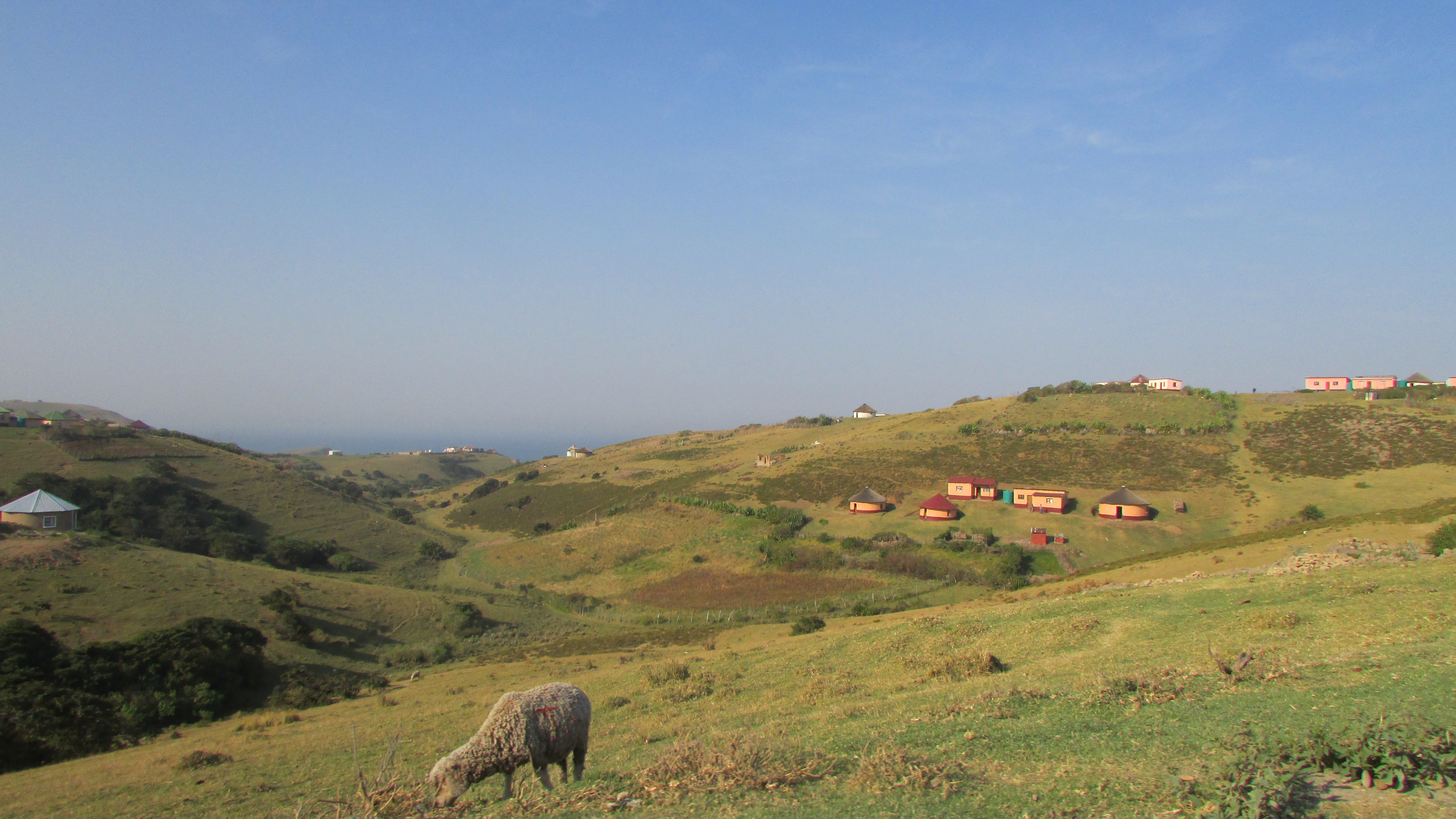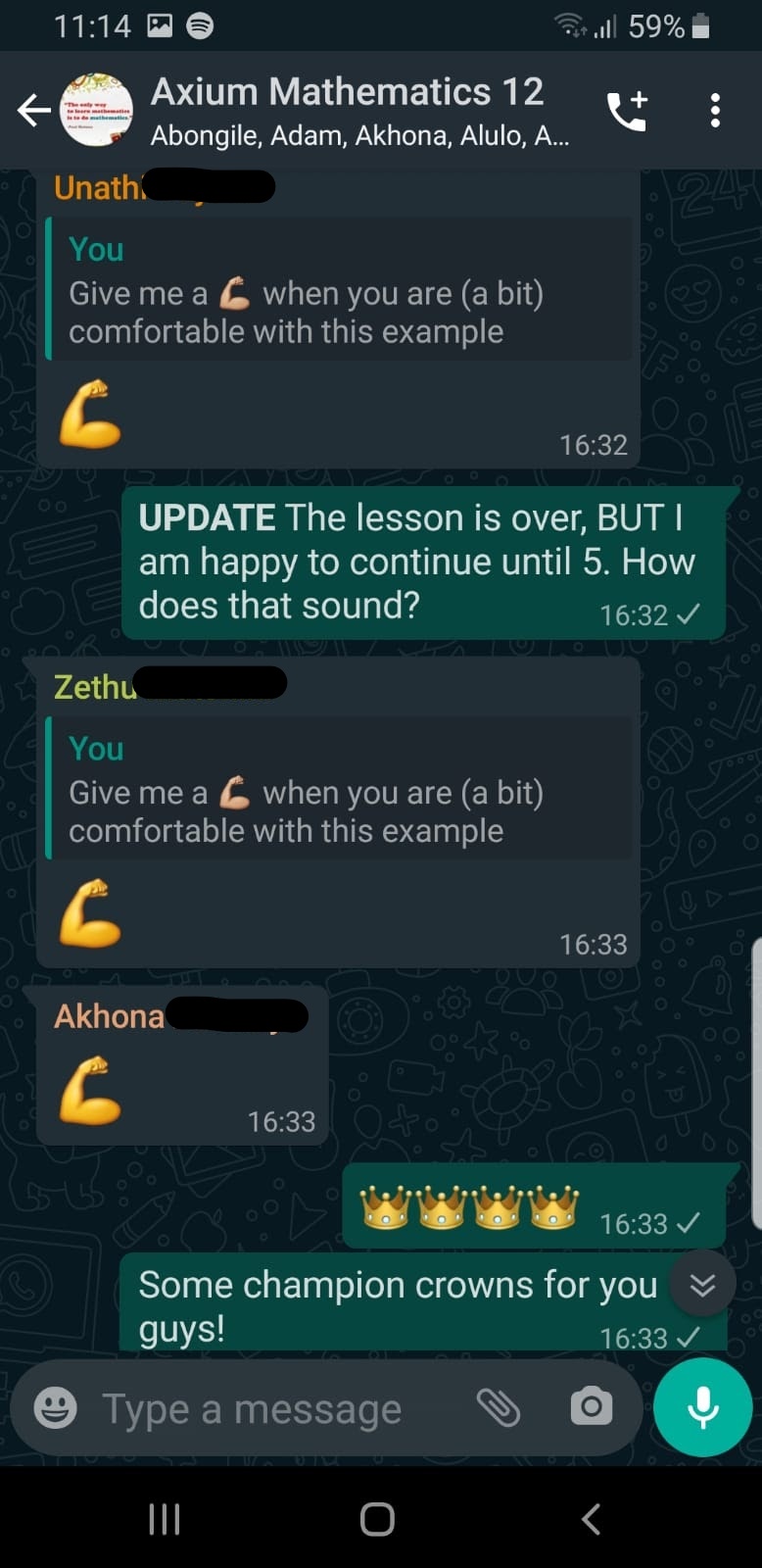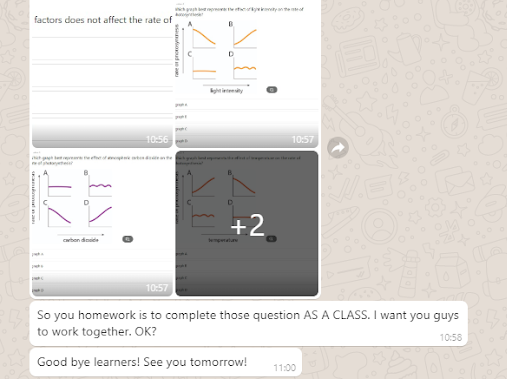OP-ED
We have cautiously opened schools, now we must open possibilities for learning

There are some small-scale examples in South Africa which help us imagine what we could achieve if we harness our available education resources to reduce the divide by opening up supportive learning – where teachers and children stay safe, no school is left behind, and where learning remains possible.
The last few weeks have seen our vibrant democracy in action. Our education departments consulted and made plans. The plan was revised based on feedback from health experts. Our Minister of Basic Education made announcements. Parents expressed themselves in public and private. Five trade unions and three SGB associations raised formal objections to the plan. Press briefings were delayed. Plans were adjusted. One province insisted on opening their schools. Courts were petitioned. Legal cases were heard.
It is not easy. And no process is perfect. Many remain voiceless. There is no on-off switch for schooling. The question of whether or not to re-open school under Covid-19 has presented multiple dilemmas
Today they have reached an agreement (albeit tentative and involving compromise) which involves 13.4% of our learners. Grade 7 children may return to primary school, provided that their school is safe and ready to meet the minimum health and safety standards. Grade 12 youth may return to secondary school, provided that their school is safe and ready to meet the minimum health and safety standards. Teachers may return to schools provided that it is safe to do so, and that those over 55 years of age, and with co-morbidities are exempt from physical attendance.
This is one of many steps towards slowly re-opening schools in a flexible way that keeps health and safety as our first priority. As I see it, with all our robust debates, court action, threats and consultations we have come together as the South African school education community and agreed on three fundamental principles:
- #SaveLives. We all agree that our first and overriding priority is health and safety. This means that the health and safety of our teachers, school leaders, workers, administrators, children and their families is paramount. No school may open unless it is safe to do so.
- #NoSchoolLeft Behind. We all agree that our efforts to make schools safe must be directed to the most vulnerable and marginalised. Our schooling inequalities are vast and must be addressed. Fixing these environments is most urgent.
- #OpenPossibilities4Learning. We all agree that learning continuity is important and that learning can take place at, and outside of, a school. Learning is supported by teachers and caring adults, and can be done remotely.
We know that we will need to be alert and flexible. We must remain vigilant to guard our safety. When and where Covid-19 cases are found, we must close schools, deep clean, and care for those affected.
I know that this agreement is tenuous. There remains much we disagree on: How to deal with the 86.6% of learners still at home? How to keep our schools safe? How do we engage on curriculum and assessment? Is there a catch up period? Of what? For whom? What quality of learning is being promoted? Who is making decisions and how do we get broad buy-in and consensus of what we want as our new normal? How do we harness this crisis to make fundamental changes to our education system?
But I think there are at least three principles which we are cohering around. So I unpack a little of what I mean by #OpeningPossibilities4Learning.
Opening possibilities for learning is informed by the other the two principles: #SaveLives and #NoSchoolLeftBehind. Our most valuable assets in our schooling system are our learners and the caring adults and teachers who support them. They must all have a healthy and safe environment for learning and child development. In usual times this space was primarily in their classrooms at schools. We think that by opening schools only to the seniors in the school, they will all stay safe. Learners and teachers will be able to wash their hands (with soap for 20 seconds) often, stay physically distant (1.5 meters apart), and sanitise all surfaces. The classroom space will not be crowded and will be kept well ventilated (with windows open).
But we cannot make our schools safe without addressing class sizes and teacher: learner ratios. We cannot make our schools safe while there is no water or adequate sanitation. So our response must address those issues.
We can’t keep our schools safe if we have all children coming back to school at the same time. So we have to create new ways of learning. We must change how we share and use the school space. There are different ways of sharing our schools classrooms: come to school in alternative weeks; alternate school in the morning with school in the afternoon; come to school on different days of the week, make school attendance voluntary (provided learning and school work carries on). To keep our teachers safe and not working double shifts, this will mean that there will be less learning time at school.
Luckily we know that learning does not only take place in school. Learning can happen and be supported anywhere – at home, in faith-based structures, in parks and while travelling. Learning is not conditional on being physically present in a school. Remote learning (away from a school building) is possible. During the lockdown period a minority of our schools have found it challenging – but possible – to keep school learning going at home. Children or parents collect textbooks, printed materials and books from school. The teacher communicates with the parent or child about what work to do. The children send or hand-in the work to their teacher and get feedback on it. This is done using school, family and personally owned equipment (telephones, mobile phones, printers, photocopiers, computers and the Internet).
But this is not easy to do in the majority of our schools. In most communities these resources simply do not exit. And this violates principle 2 (#NoSchoolLeftBehind). So to ensure our most vulnerable and marginalised communities can open possibilities for learning we must overcome these resourcing barriers. We must use what we have: Teachers (who are willing to work remotely, and/or in safe school buildings), television, radio, printed materials, and some communication tools (school and mobile phones with data). We must mobilise what we need: printed materials, mobile devices, data and a supportive national/provincial programme to empower caring adults (teachers and parents).
Learning has continued during lockdown: our children have played, swept, cooked, cleaned, watched TV, discussed, listened, talked, read. Our inequality has meant that some have had access to more varied types of learning than others. And it is our quest to lessen that divide. A major part of that divide is digital, between those who have devices and data and those who do not. But another large part of the divide of those who can access rich and specialised knowledge (which is valued in the world of work and for further study), and those who cannot..
We have some small scale examples which help us imagine what we could achieve if we harness our available education resources to reduce this divide. We have some examples from rural areas where teachers and children stay safe, no school is left behind, and where learning remains possible.
This is the story of Axium Education (axiumeducation.org). My involvement with Axium is peripheral – as I supervise the PhD of one of their staff members. I have spent time in the area on several occasions. I have been impressed by their joined-up approach to supporting learning. Axium education’s Covid-19 shift to remote learning is written from the perspective of their leadership team.
Remote learning in the rural Eastern Cape: The case of Axium Education

Remote learning is possible in a rural context, writes the author. Photo: Jessica Hendrickz
First, some context.
At Axium, we live alongside and serve a tremendously vulnerable population in the rural Eastern Cape. Much of the community is carried on the backs of the oomakhulu and ootatomkhulu – a relatively large group of elderly people. A large portion of the community also live with already compromised immune systems. We have just had our first positive coronavirus case, and are bracing ourselves for the coming weeks. Access to accurate information about the virus and to medical facilities remains difficult for many people, however, we are doing our best to play a role with regards to sharing accurate and empowering information and we are grateful to all of the health care workers on the frontline of this pandemic.
Physical distancing is most certainly a privilege that few in our country and community can afford. The majority of our community relies on public transport to get to work, to travel to shops and to collect government social grants. A large portion of the community are at risk being elderly or suffering from HIV and TB. Many people don’t have access to running water except from communal taps which may be shared across several families. Lack of access to electricity means that charging devices requires interacting with neighbours or spaza shop owners on a daily basis. The reality is that many people cannot afford to stay at home.
Responding to Covid-19
Within the first month of lockdown, Axium pivoted to become a fully engaged Remote Learning organisation. Our reach has been limited by student and family connectivity, but we have worked on the principles of “something is better than nothing”, and “attempt, analyse, adapt”.
We know that maintaining a connection with school – in some shape or form – is vital for dropout prevention. With this in mind, we have focused our efforts on supporting our existing students in new ways. This could not take place immediately.
We have been experimenting with ways to keep working with teachers and learners across grades, subjects and schools to ensure that learning can continue for as many children as possible The details vary by programme and age/grade and range from relatively high-tech to low-tech/traditional. Central to all our work is for people to connect via regular phone calls and socio-emotional check-ins.
Early-grade literacy and numeracy support for Foundation Phase (Grade R-3)
During the initial stages of lockdown, the Foundation Phase programme leaders were generating content, producing and delivering simple activities for parents and families to do with Foundation Phase learners at home. These activities were initially limited to our Foundation phase team members to engage with the handful of children at their own at their homes.
Wanting to grow our reach, the Foundation Phase team under Covid-19 guidelines were able to visit children’s individual homes and gather data of parents who would like to work with their children. We have now managed to reach over 700 foundation phase children, working with them through sending weekly activities via sms and Whatsapp (where possible) to their parents at their homes.
Strengthening English and Mathematics essentials in transition years (Grade 6-9)
Since most learners are not able to receive WhatsApp messages, our Intersen Phase team has been generating English and Maths tasks and sending it to learners via SMS using their parents feature phones. The team then follows up with learners academic progress and general well-being via weekly phone calls.
We initially thought that our maths tablet programme would have to be suspended while schools are closed due to a large number of students and lack of access to devices. However, in the weeks that have followed the team have been able to trace and connect with a growing number of learners who have access to appropriate devices and set them up with Maths activities and support.
We are hopeful that through our device and data drives we will be able to connect more learners with phones and expand our reach. We are also working toward having learners come and collect printed workpacks, as so many do not have access to devices.
Senior Schools: focused Science, Mathematics and English tuition as well as Careers support for (Grade 10 to 12)
With respect to Axium’s Senior Schools Programme, a significant portion of the students can continue learning in some capacity. Earlier in the year, each grade 11 and 12 student belonging in the programme was provided with a low-cost cellphone and set up with a Siyavula account. Most learning is now taking place on Siyavula. In addition, Mathematics, Physical Science and English WhatsApp groups have provided a virtual space to engage with teachers in structured lessons.
Students are also being provided with tips on how to self-study and given a break-down of the topics to focus on or revise during the suspension of school. Furthermore, these students are receiving encouragement via regular SMS and a fortnightly phone call. We know that lockdown and the uncertainty that the virus has brought to life and students’ academic future has been unsettling, so supporting the socio-emotional side will continue to be important.

WhatsApp correspondence between Axium and learners.
School improvement work with eight schools in the Amajingqi area
Our team working with the AmaJingqi Public Schools Partnership (a DG Murray Trust led initiative) has drawn on a number of strategies to support teachers, learners and school leaders. The team has seen it as an opportunity to demonstrate the importance of keeping learners engaged and connected to learning and to lead in the work we’re doing. We were able to establish subject whatsapp groups, initially for matric students and systematically working to include grades below matric. The team has also drawn on the community-based approach of the Foundation Phase team to connect with Foundation Phase learners and parents. We were able to partner with local traditional authorities to support the provision of food to over 1000 families in need. In the past few weeks the team has been working non-stop to respond creatively to the challenges of going back to school to ensure a safe start for all learners and teachers.
Common across all our work has been a commitment to careful monitoring, weekly data reviews, and ongoing improvements in terms of reach and quality. For all the significant efforts of students, teachers and community members our reach is still only at ~30% of our 3,200 learners, largely due to lack of connectivity.
What can we learn from Axium education’s experience with remote learning thus far?
Axium Education is mobilising resources and networks of adults in this rural community to save lives, make sure no school is left behind and open possibilities for learning. These caring adults – teachers, principals, workers, parents and Axium staff are working hard to make schools safer – especially with sanitation and water. At the time of writing (8 June) not all of the 20 odd schools Axium works with had received their PPE and basic sanitation, and they did not meet the minimum standards. So these schools have remained closed this week. It is hoped they can open safely to Grade 7s and 12s over the course of this week.

The Axium case shows us that remote learning is possible in a rural context. With schools closed, radio, television, print, telephones and data have been used to connect people – and those resilient and resourceful people – have kept possibilities for learning open. However with no physical access to children at school (thus far) which would enable children to collect print materials from school, and no national intervention on zero-rated data, 70 percent of children are being neglected.
We urgently need to harness our available resources to provide a nationally coordinated remote learning programme. Can we afford this? Yes. The Western Cape is to receive R3-billion to support its Covid-19 health crisis. I think there is a compelling argument and cost-saving model to be made that protecting our teachers, learners and families by supporting flexible remote learning is a necessary intervention, which will #SaveLives, reduce escalating health costs, and #LeaveNoSchoolBehind.
The public remote learning programme must offer a multimodal Grade specific programme drawing on print, radio, television and telephones (designing for feature phones and using school’s fixed lines). It must include zero-rated data for asynchronous communication, using SMS and chat, preferably with images and audio/video clips. Teachers are its central facilitators – working remotely with the learners and families they already know, and whom they may see occasionally at school. Designing this to reach rural areas and supporting teachers to make this change targeting our most vulnerable and marginalised communities is an urgent need. This is necessary not only for when more grades are expected to share the school space (on 6 July and 3 August), but for the next 18-24 months. During this challenging time we must change curriculum coverage, pacing, diagnostic and summative assessment practices. We must meet our children where they are – by teaching to the right level – and make sure we teach our children rather than the CAPS. A multi-modal national remote learning programme is a key way to support our most precious assets: our teachers and learners, while #SavingLives. DM
Nicky Roberts is an Associate Professor in mathematics education in the Centre for Education Practice Research (CEPR), University of Johannesburg, Soweto campus. She has a PhD in mathematics education (Wits), and a masters in International perspectives in mathematics education (Cambridge). She writes in her personal capacity.


















 Become an Insider
Become an Insider